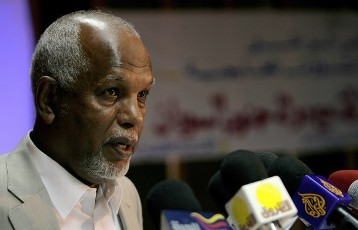Parliament quantifies Sudan’s “austerity government”
July 3, 2012 (KHARTOUM) – The speaker of Sudan’s National Assembly, Ahmed Ibrahim Al-Tahir, has revealed that the number of ministries in the country’s upcoming cabinet will be down by six as part of the government’s wider austerity measures which aim to slash spending on bureaucracy.

Sudan’s current cabinet, which was formed in December last year, is composed of 30 portfolios, the majority of which are occupied by NCP members while three portfolios were given to members of the ex-opposition Democratic Unionist Party (DUP) which joined the government despite strong internal dissent.
Al-Tahir’s revelation puts an end to weeks of speculations as to the extent of the restructuring that the government announced it will carry out as part of wider austerity measures including termination of fuel subsidies to make up for what officials say is a budget deficit of $2.4 billion US created by the loss of 75 percent of the country’s oil production due to South Sudan’s secession.
The top parliamentarian pointed out that the government had already dismissed over 50 experts and consultant from their positions as part of the austerity push.
Al-Tahir also announced reduction in the number of parliamentary committees as well as in the salaries of their heads. He said that the heads of the remaining parliamentary committees will retain their positions but without perquisites. According to Al-Tahir, 26 cars belonging to the heads of parliamentary committees had already been taken back.
Sudan’s President Omer Al-Bashir said before the parliament two weeks ago that the executive branch of the government will undergo restructuring in order to fall in line with the new austerity conduct.
The reduction in the number of parliamentary committees, meanwhile, drew a complaint from one MP who said that it was a unilateral decision.
According to Asha Al-Ghabshawi, an MP representing the NCP, the decision to reduce the number of parliamentary committees from 13 to 10 was not subject to consultation.
(ST)
